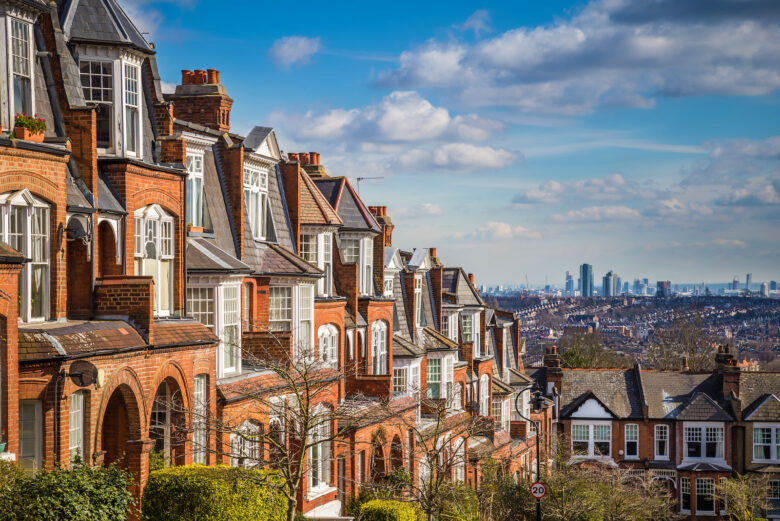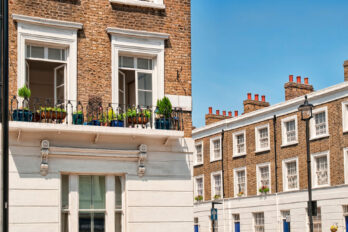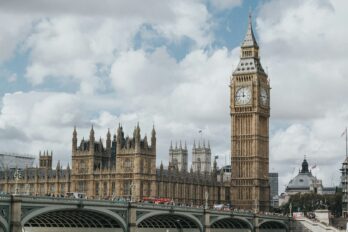
What is the Difference Between Leasehold and Freehold?
When you begin searching for a new home, you’ll likely notice in the listings that properties are marked as either freehold or leasehold. While it can be easy to gloss over this and focus on location, price and all those other key deciding factors that affect your search, whether you choose a leasehold or freehold property can have long-term implications and shouldn’t be overlooked.
What does leasehold mean?
Leasehold and freehold are two different forms of legal ownership. With a leasehold you own the property – but not the land it’s built on – for the amount of time set out in the lease, after which it transfers to the freeholder. While this can sound daunting and even raise the prospect of buying a property on a short lease and simply losing it to the freeholder when the lease expires, in reality this is very, very unlikely to happen. Having said that, make sure you are clear on the length of time left on a lease and, if it’s less than around 90 years, how much an extension will cost, before you agree on a property purchase.
What does freehold mean?
If you buy a freehold property, you own both the building and the land it’s on until you decide to sell it. While freehold will be the preferred option for many buyers, it isn’t always possible as, particularly in London, most flats tend to be leasehold. Freehold properties will also likely be more expensive at the outset.
Pros and cons of leasehold
In addition to the ever-diminishing time left on a lease, the biggest drawbacks when it comes to leasehold properties tend to be the fees and charges associated with them and restrictive conditions within the lease. For example, as a leaseholder you’ll be expected to pay ground rent and service charges. These can be substantial and can often be increased by the freeholder as time passes. It’s worth checking the lease to see if the service charge provision is fixed or variable. If it’s the latter, the freeholder will be able to increase charges, although by law this can only be by a ‘reasonable’ amount.
In terms of lease restrictions, key conditions to be aware of include whether you’re allowed to keep pets, rent out a room or run a business from the property. You may also need written permission and potentially have to pay a fee to carry out any major changes.
While these are all reasons to be cautious, your solicitor will review your lease and prepare a report highlighting the key provisions to help you understand what is required of you and what you’re agreeing to. Bear in mind, this can mean higher conveyancing fees when buying a leasehold property, however.
Despite these potential downsides, there are around 4.5 million leasehold properties in the UK, so there must be some upsides to them. Apart from them often being cheaper than freehold properties, a leasehold flat or house will require less input when it comes to repairs and maintenance as the freeholder will normally be responsible for this. While this can mean you have less say in what’s fixed and what isn’t, it also means you don’t have to source contractors or carry out the work yourself. The freeholder will also be in charge or arranging building insurance.
It is also possible for leaseholders to come together to purchase the freehold on their block of flats. While by no means a simple process, this does offer the opportunity to remove restrictive lease clauses and extend the lease to 999 years, creating much the same living situation as a freehold.
How long is my lease?
For many buyers, however, lease terms and charges will take second place to the length of the lease when it comes to deciding whether or not to buy a property. Your estate agent should be able to tell you how long is left on a lease. You can also check the lease document, which will highlight when the lease started and the length of the term.
As a rule, lease terms of under 90 years should be approached with caution. Once you hit 80 years the value of your property could be seriously impacted and your best bet will be to look into an extension, although you must have owned the property for at least two years before you can start this process. Almost every leaseholder has the right to extend their lease, usually for a period of 90 years on a flat and 50 on a house, but it can be expensive and isn’t something that should be started without expert advice.
Pros and cons of freehold
Given the potential uncertainty and complexity associated with a leasehold property, a major advantage of freehold is that they’re pretty straightforward. You own the property so the only thing you have to worry about is meeting any mortgage payments; you don’t have the added issue of a lease potentially running out. You also won’t have ground rents or service charges to contend with and you won’t have to deal with a freeholder who may have different priorities to you.
On the other hand, this does mean you will be responsible for all costs relating to the property, so if repairs are needed you’ll have to find people to carry out the work and foot the bill. You’ll also have to source and pay for building insurance.
What are commonhold properties?
Just as all that starts to make sense, it’s probably also worth adding commonhold properties into the mix. A variant of freehold, commonhold was introduced around 20 years to attempt to overcome some of the less popular aspects of leaseholds.
With a commonhold property, a multi-occupancy building such as a block of flats is divided into a number of freehold units, so each individual flat owns its own freehold. Communal areas such as entrance ways and stairs are managed by a Commonhold Association, a company owned by the freeholders. This gives them a greater level of transparency and more control over property costs and charges and removes the problem of short leases.
While this could sound like the perfect solution to any leasehold woes, it is difficult to convert a property from leasehold to commonhold and mortgage lenders and developers appear to be wary of it. In fact, only 20 commonholds have been created since it was introduced in 2002, although earlier this year the UK government did announce the creation of a Commonhold Council to encourage take up.
What does the future hold for leasehold?
So, while commonhold may not be the answer to a fairer property market just yet, there are changes afoot that could make leasehold more attractive to buyers. In January, the government announced that leaseholders of both flats and houses would be given the right to extend their lease by up to 990 years at zero ground rent. The government is also abolishing certain other costs associated with buying a freehold or extending a lease, such as marriage value, which was designed to compensate the freeholder for the increase in property value that occurs when a lease is extended. It will also set the calculation rates in a bid to ensure the process is fairer, cheaper and more transparent. Legislation is expected to be ready for consideration by the House of Lords within 12 months.
The Novello approach
Whether buying a freehold or leasehold property, it’s important to be well informed and able to access all the information you need in a quick and clear manner.
Novello is here to help. Whether you simply need a survey, advice on leasehold extension or you’re considering buying the freehold, our expert team is on hand to offer advice on the processes involved, how much it will cost and the outcome you can expect.
You can always be sure our advice is impartial and accurate, and our industry specialists will work hard to deliver a smooth experience so you can get on with enjoying your home.
To find out more, contact us today.

